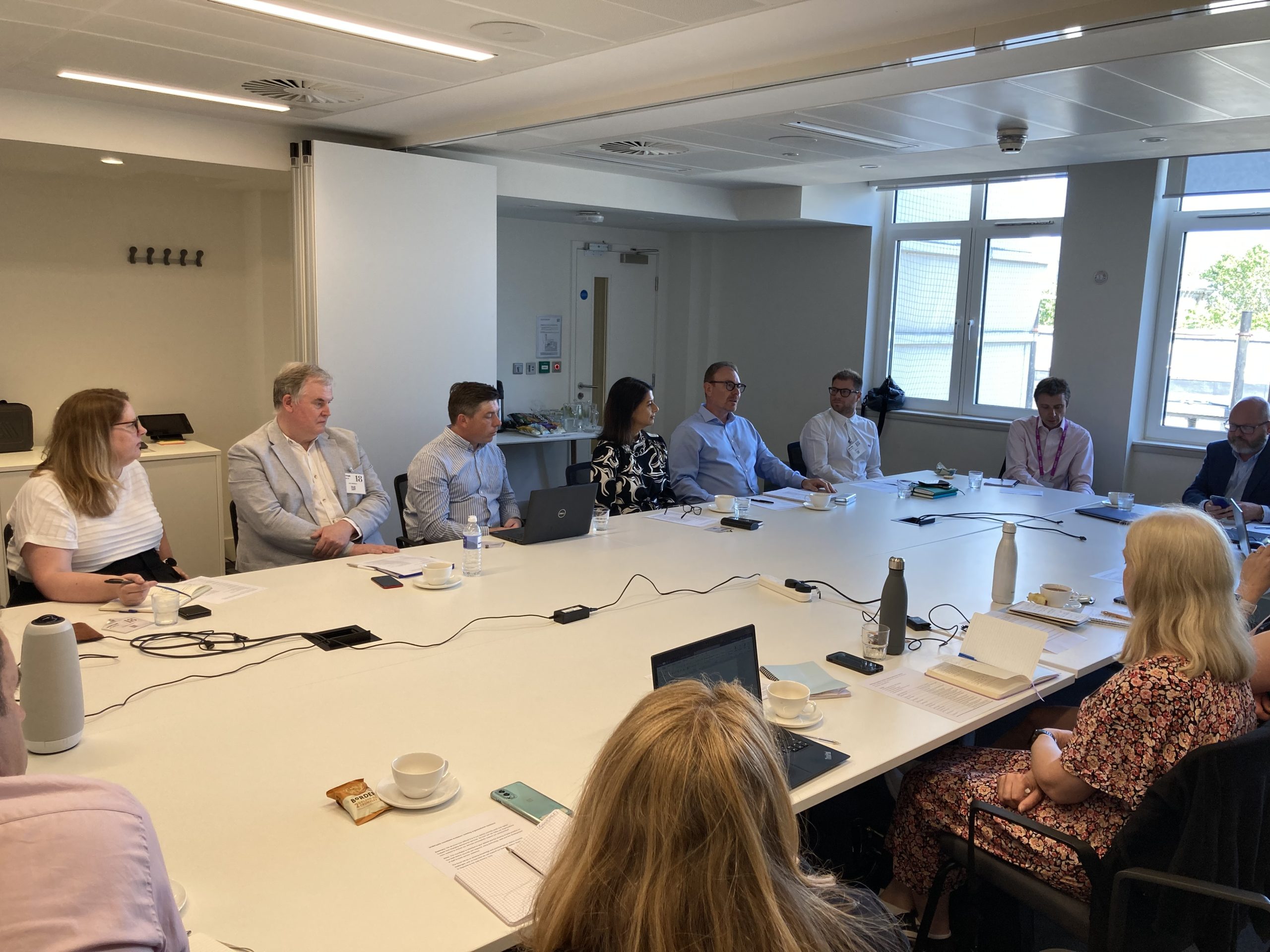A DCN/Capita roundtable brought together member councils to contemplate how authorities can become more resilient amid rising demand and budget pressures
It has become ever harder to run councils as budgets tighten, staff come under greater pressure and demand for services escalates. So how should local government respond? How can we make our organisations more resilient? How can we ensure that, despite our pressures, our services continue to deliver for our communities? And how can we respond to new crises and changing priorities?
This was the subject of a DCN roundtable, held with the support of Capita, which focused on the sharing of best practice in using the latest working practices, technology, data and management techniques to deliver services flexibly and responsively.
The discussion began with participants – who hold a variety of roles in district councils, including chief executives, human resources leads and finance leads – outlining the specific challenges they face on their councils.
Competition for staff
Many outlined the difficulty of recruiting and retaining staff. Some said the fact they were in an area growing economically meant that there was much competition in the labour market. One attendee said that changes in post-Covid working practices, with three days of home working a week being common, meant their council was now in competition with London boroughs for staff who would have previously been deterred by long commutes on five days a week.
Planning, finance and legal services were named as areas particularly prone to staff shortages. Some participants noted their council’s need for new groups of staff, for instance specialists in technology or ecology as presenting a challenge.
Staff networks, including those for young professionals and black and minority ethnic, was highlighted as a means of retaining staff, as was more flexible working patterns. There was a widespread view that flexibility was essential to encourage people into local government. Flexible working practices and structures were deemed vital to attract staff from the private sector – and to stem the flow of employees from councils.
Finance
Of course, finance challenges loomed large too. One participant said that budget cuts had made the core of their authority less resilient and agile. Others said that while their authority had previously been relatively comfortable financially, projections of budget difficulties in the coming years means transformation was now essential.
“Although our financial position is not critically desperate, if we don’t do anything there is a massive problem,” said one. Another framed transformation in a more positive context: “Change and development is as much about us winning as a council as it is about us staying alive: we should be excited about this and embrace it, it’s not just about keeping the wolf from the door.”
Culture change
But transformation can be unsettling for staff. One participant emphasised the necessity of workforce engagement and their desire to highlight that team members could often come up with new ideas on how they could better operate: “We have a huge sales job with staff. I haven’t sugar coated it. But I want to emphasise that often they have the solutions.
“It’s about turning to the people seen as ‘the moaners’ and ask why they moan,” they said. “Put them on a pedestal. See them as a ‘problem alerter’. Everyone can make a really big difference.”
The need to change working practices was highlighted – including the need to cut down on unnecessary meetings and ending meetings promptly and bringing about a culture of mutual support so that staff understood how finishing work on time assisted their colleagues.
Some participants spoke of an end to the “clocking in, clocking out” culture which is being replaced by a results-orientated attitude. “You know what’s expected – you want the approval of peers and colleagues,” said one. One district had specified targets to achieve every 90 days for the coming period as part of its work on a 25-year strategy – attaining these targets was considered far more important than usual office hours.
Frontline staff needed to be empowered, it was widely agreed, with as few layers of management between them and leaders as possible. “People on the frontline get what’s important on delivery,” said one. One district was restructuring to ensure a greater consistency of management tiers across its organisation.
The changing workforce needs of councils was discussed. One participant spoke of their council’s “unashamedly commercial approach” which saw it employing “business analysts, robotics people, and talent acquisition people instead of HR”. Their aim was to avoid “traditional silos”.
Partnership
Councils’ partnership work was highlighted. Local wildlife trusts and Citizens Advice were, for example, named as organisations with specific expertise which respectively help councils in their conservation and poverty alleviation work. However, there were mixed reports about the effectiveness of shared services between councils, with the flexibility of structure and governance seen as key to success. “It helps if the chief execs have worked together before and are close but if one changes it falls away,” warned one.
Citing the fact that many staff on their council’s revenues and benefits team were approaching retirement, one participant said the focus of shared arrangements should be resilience – ensuring fully skilled teams were available, rather than making savings.
“When your starting point is ‘we have to make savings’, that should be a flashing red light,” said one. “Our starting point is resilience.” Another suggested councils should seek to lead partnerships in areas which they were particularly strong in, adding, “we can’t be exemplars in everything.”
Technology
There was enthusiasm for the potential of new technology. AI was being used by one council to improve ability to publicise planning applications among those living in the affected area, as well as to give a sense of the overall sentiments of responses. “Tech has huge potential to drive down costs,” they added.
One attendee said the work of their council was underpinned by three or four main computer systems but an additional 50 systems were used by specialists in specific areas. They considered this unwieldy, stating: “You cannot pull a single report out of 55 systems.”. Transformation is underway. The participant said that too many staff were undertaking manual tasks such as sending emails or post. It is hoped that AI will free up staff to take on more complicated tasks.
One authority said it had set a target of customers being able to self-serve on 60% of queries, with just 10% dealt with by the council’s technical experts. Three years previously, the proportion was the opposite way around. The digital onus is very much about empowering service users, it was widely agreed.
And robots are being increasingly used. One council said robots cut the time it took to complete a revenues and benefits procedure from 20 days to 24 hours.
“I’d like 20 robots by 2025,” they said. “My nirvana is that my council will become a robotics specialist.”
It is clear that we are living in an era of change. There are rapid developments in technology, working culture and ways of operating and districts are embracing them. The clear aim is to make councils more resilient – and they have to become more resilient to serve the evolving needs of its communities in a world that is becoming increasingly unpredictable and difficult.






